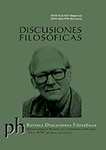Authors
Abstract
The nature of the relationship between pure science and applied science (i.e. technology) has been the subject of recurring controversy since ancient times. In the recent work on Philosophy of Technology, those perspectives which build on some alleged independency between science and applied science and the latter and technology to reject any attempt at relating epistemically or pragmatically both areas are prominent. In this paper, we critically examine Feibleman’s arguments to establish a sharp difference between pure and applied science and evaluate the import of his examples and counterexamples. From a realist, fallibilist and analogical perspective, we show that Feibleman does not succeed in proving his thesis and that, on the contrary, there are many more good reasons to defend the existence of a strong tie between applied science and technology despite the fact that there are many instances of concrete technological achievements which preceded the formulation of the corresponding theories that explain or support those realizations.
References
--------. Posterior Analytics. (2002) Translated with a Commentary by Jonathan Barnes. New York: Oxford University Press.
Bunge, M. (1966) "Technology as Applied Science". Technology and Culture, 7 (3) 329-43.
--------. (1980) Tecnología y Filosofía. En: Epistemología. Editorial Ariel: España.
De Vries, M. (2005) Technological Knowledge. En: Teaching about technology: An Introduction to the philosophy of technology for nonphilosophers. Springer.
Devitt, M. (2010) Aberrations of the Realism Debate. En: Putting Metaphysics First. Oxford University Press.
Díez y Moulines. (1997) Fundamentos de Filosofía de la ciencia. Barcelona: Ariel.
Feibleman, J.K. (1983) Pure Science, Applied Science, and Technology: An Attempt at Definitions. En: Philosophy and Technology: Readings in the philosophical problems of technology. Carl Mitcham and Robert Mackey (ed). The Free press, New York.
Flórez, D. (2012) ¿Exige el realismo científico un compromiso con la teoría correspondentista de la verdad? Revista Praxis Filosófica. Universidad del Valle. No 34 enero-junio.
García, Carlos E. (1991) Evolución histórica del pensamiento científico. Manizales: Universidad de Manizales.
-------. (2006) Popper’s Theory of Science. An apology. London: Continuum.
Kroes, P. Engineering Design. (2013) En: A companion to the Philosophy of Technology. Jan Kyrre Berg Olsen Friis (et.al). Wiley Blackwell. USA.
Li-Hua, R. Definitios of Technology. (2013) En: A companion to the Philosophy of Technology. Jan Kyrre Berg Olsen Friis (et.al). Wiley Blackwell. USA.
Miller, David. (2007) El único modo de aprender. Revista Estudios de Filosofía. Universidad de Antioquia, No. 36.
Quintanilla, M.A. (2005) Diseño y evaluación de tecnologías. En: Tecnología un enfoque filosófico: y otros ensayos de filosofía de la tecnología. México: fondo de cultura económica.
Plato. Theaetetus. (1990) In: Myles Burnyeat. The Theaetetus of Plato. With a translation of the Theaetetus of Plato by M. J. Levett. Indianapolis: Hackett Publishing Company.
Skolimowski, H. (1966) The Structure of Thinking in Technology. En: Philosophy and Technology: Readings in the philosophical problems of technology. Carl Mitcham and Robert Mackey (ed). The Free press, New York, 1983

 pdf (Español (España))
pdf (Español (España))
 FLIP
FLIP




























